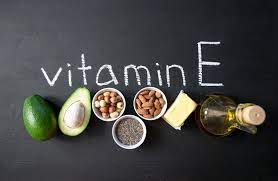Vitamin E is an essential micronutrient that has an important role in your child’s diet. Micronutrients are vital components of our diet but are only required in very small amounts. Vitamin E is a fat-soluble vitamin, which means it’s absorbed with fats in your diet, along with vitamins A, K and D.
Vitamin E For Children
Vitamin E has important roles in your child’s body. Vitamin E is an antioxidant, which means it helps counter the effects of free radicals in the body. Free radicals are chemicals formed in our body during various normal chemical reactions in the body, and they can cause damage to cells. Free radicals also form because of ultraviolet rays from the sun, exposure to cigarette smoke and air pollution.
Vitamin E also has a role in immune system function and clot prevention.
Sources of Vitamin E
Given the role that vitamin E plays in health, it is important to ensure that your child eats a balanced diet to ensure adequate quantity and quality of nutrients, including vitamin E. The following are good sources of vitamin E:
Specific oils. Wheat germ oil is the best source of vitamin E, but other oils like sunflower, safflower, corn and soybean oil also provide vitamin E.
Nuts. Almonds, peanuts and hazelnuts are good sources.
Seeds. Like the oil that is produced from sunflower seeds, the seeds themselves are a good source of the vitamin.
Dark green vegetables. Vegetables like spinach and broccoli can provide some amount of vitamin E.

Vitamin E Deficiency Symptoms
Vitamin E deficiency that leads to symptoms is generally rare. However, a deficiency can be a sign of a unique disorder and therefore may be concerning to your child’s physician. The key is to look early and test for the deficiency before symptoms set in.
Severe deficiency of vitamin E manifests in the form of symptoms related to the nervous system and includes difficulty walking, coordination issues and visual concerns. In general, severe deficiency is expected in children with liver disease that affects flow of bile (cholestatic liver disease), including a couple of rare disorders of bile acid transporters. In premature infants, vitamin E deficiency can induce anemia, also known as iron deficiency.
Diagnosis and Treatment
Your child’s doctor would do a blood test for vitamin E levels to do diagnose deficiency. If the levels come back low, your child’s doctor would suggest a supplement dose based on the deficiency. Often, if the main concern is that your child’s body is unable to properly absorb vitamin E, the dose of vitamin E that is recommended is much higher than the recommended daily allowance that your child should receive from their diet. It is important that vitamin E levels are rechecked subsequently to ensure that the levels improve with supplementation.
Your child’s physician would also check for neurological signs that may suggest vitamin E deficiency. However, due to recent increasing awareness of vitamin E deficiency, it is uncommon for deficiency to become so severe that neurological changes are seen.
Vitamin E for Disease Treatment
Vitamin E may help treat children with fatty liver disease by improving liver enzymes. However some studies, both in children and adults, do not show a conclusive benefit, and long-term benefits have yet to be studied. The use of vitamin E in this setting will need to be made in consultation with your child’s physician and with close monitoring. The benefits of vitamin E supplementation in preventing or reducing cardiovascular problems, cancer risk and cognitive decline in adults have not been clear.
Vitamin E Supplementation
Normal amounts of vitamin E from your child’s diet should not lead to any adverse health effects. Also, treatment of deficiency is important and not associated with adverse effects, even in high doses.
However, high doses of vitamin E in animal studies have been known to affect blood clotting. In humans, high doses may also affect the function of platelets (tiny cell-like structures in blood that are important for stopping bleeding in the body).
Therefore, if you’re thinking about vitamin E supplementation for your child, it is important to discuss the risks and benefits with your child’s physician or provider.
Post time: Jan-20-2023




